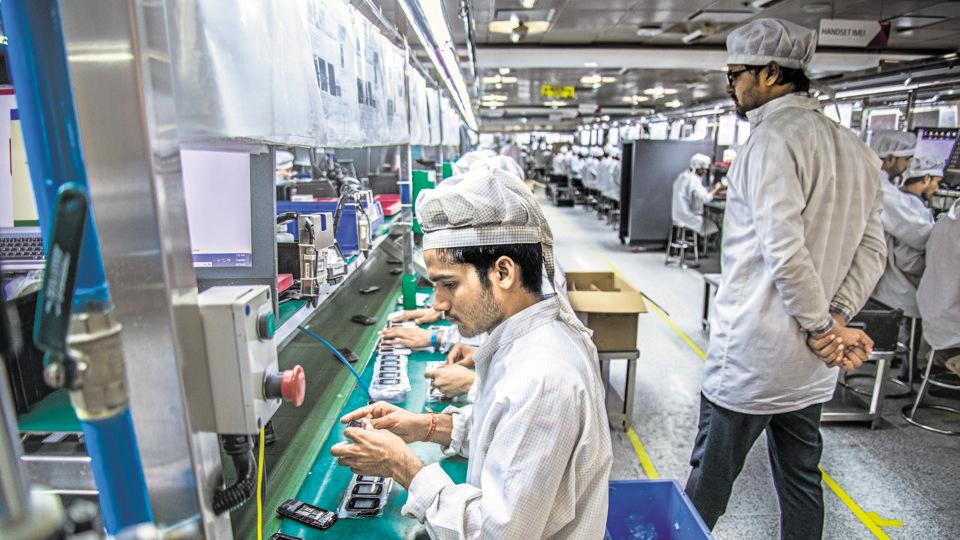Budget 2020: Finance minister proposes scheme to boost mobile phone, semiconductor manufacturing
Announcing the Union Budget for 2020-2021, Finance Minister Nirmala Sitharaman said that a scheme to encourage mobile phones manufacturing, semiconductor packaging and electronic equipment is in the pipeline.

Announcing the Union Budget for 2020-2021, Finance Minister Nirmala Sitharaman said that a scheme to encourage mobile phones manufacturing, semiconductor packaging and electronic equipment is in the pipeline.
"There is a cost advantage for electronics manufacturing in India," Sitharaman said adding that the whole process needs more investment.
The proposed scheme aims to make India a hub for electronic manufacturing in line with the "Assemble In India" plan that was proposed by the Economic Survey on Friday.
"India needs to manufacture networked products which will make India part of the global chain. Electronics industry's potential in manufacture and job creation is immense. We need to encourage manufacturing of mobile phones, electronic equipment and semiconductor. Details will be announced," Sitharaman said in her speech.
"I propose a scheme to encourage manufacturing of mobile phones, semiconductor packaging and electronic equipment," Sitharaman said. She also pointed out that this scheme can be used for manufacture of medical devices as well.
The detailed scheme with all details is expected to be released soon.
A Modified Special Incentive Package Scheme (MSIPS) to promote a "20-odd component manufacturing ecosystem in the country that will go beyond making mobile phones" could be in the pipeline as well. This could be an "overarching policy which goes beyond interest subvention and credit default guarantee and it will be outside the scope of MeitY (Ministry of Electronics and Information Technology) and by an outside department/arm since ministry's role is that of a policymaker only".
MSIPS was first put in place to encourage electronics manufacturing and it ran from 2012 to 2018. It promised "multiple incentives for 10 years, including a capital subsidy of 20 per cent in special economic zones (SEZs) and 25 per cent in non-SEZs, and reimbursements of countervailing duty or excise on capital equipment for non-SEZ units".
In the case of some high-capital projects, MSIPS also offered reimbursement of Central taxes and duties. The MSIPS incentives were available for 29 electronic verticals across the manufacturing value chain. The period of benefits was reduced to 5 years from 10 years after the scheme was recalled.
MSIPS was created to provide financial incentives across the ESDM (Electronics System Design and Manufacturing) value chain and to compensate for the cost disability in manufacturing and in the Electronics Manufacturing Clusters (EMC).
This sector has shown tremendous promise with exports growing from US $200 million three years ago to over $2 billion in the year 2019-20 for handsets alone. That is a 10x growth in a period of 36 months.
The Make in India programme saw one of its biggest success stories in the form Noida becoming a hub for mobile phone factories. According to the IANS report, the size of the domestic mobile manufacturing industry in FY 2019-20 is expected to be ₹1,35,000 crores.
India is at the second position in the global mobile handsets market and this is projected to grow further by 302 million units this year.
(With agency inputs)
Catch all the Latest Tech News, Mobile News, Laptop News, Gaming news, Wearables News , How To News, also keep up with us on Whatsapp channel,Twitter, Facebook, Google News, and Instagram. For our latest videos, subscribe to our YouTube channel.































